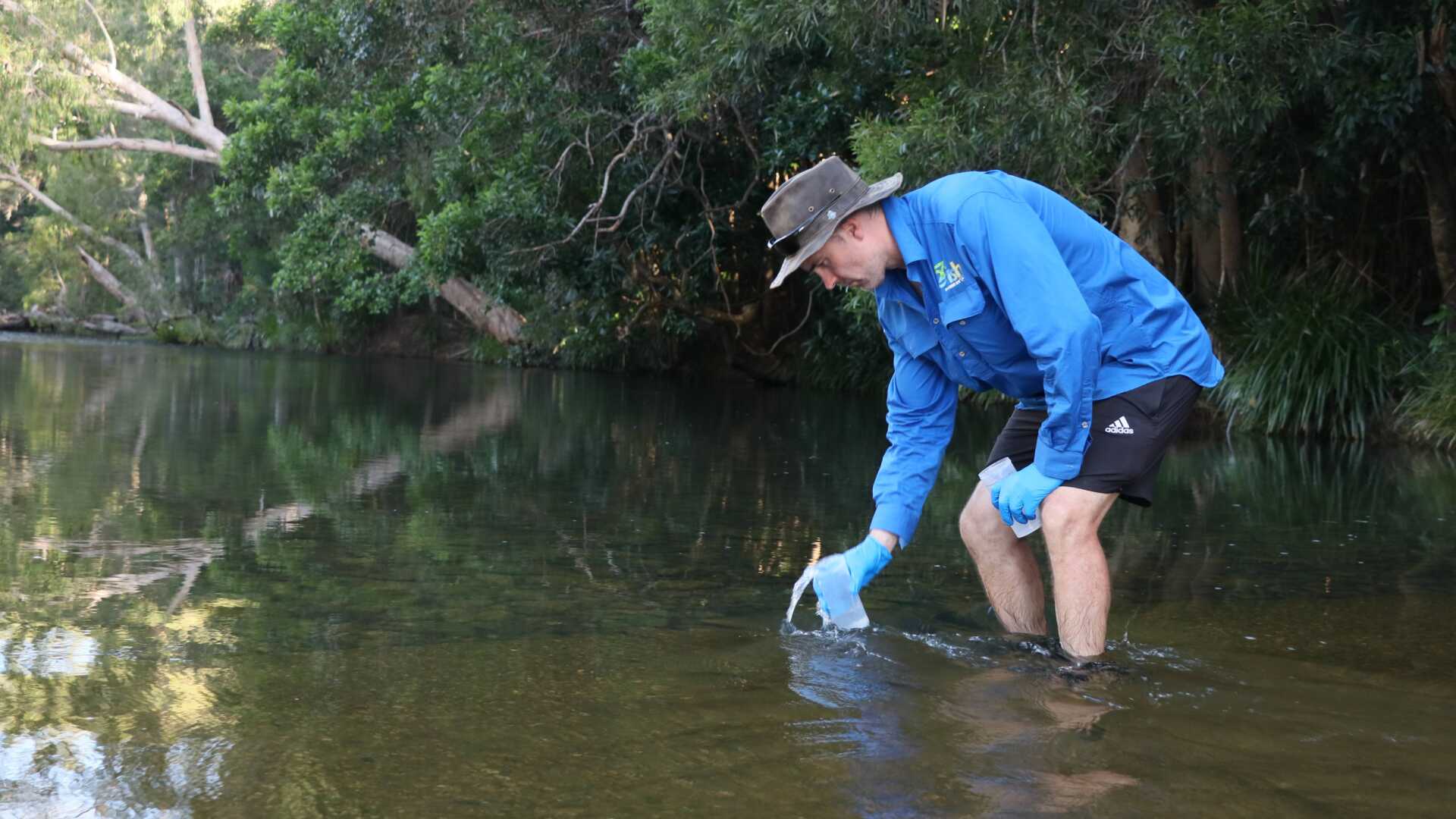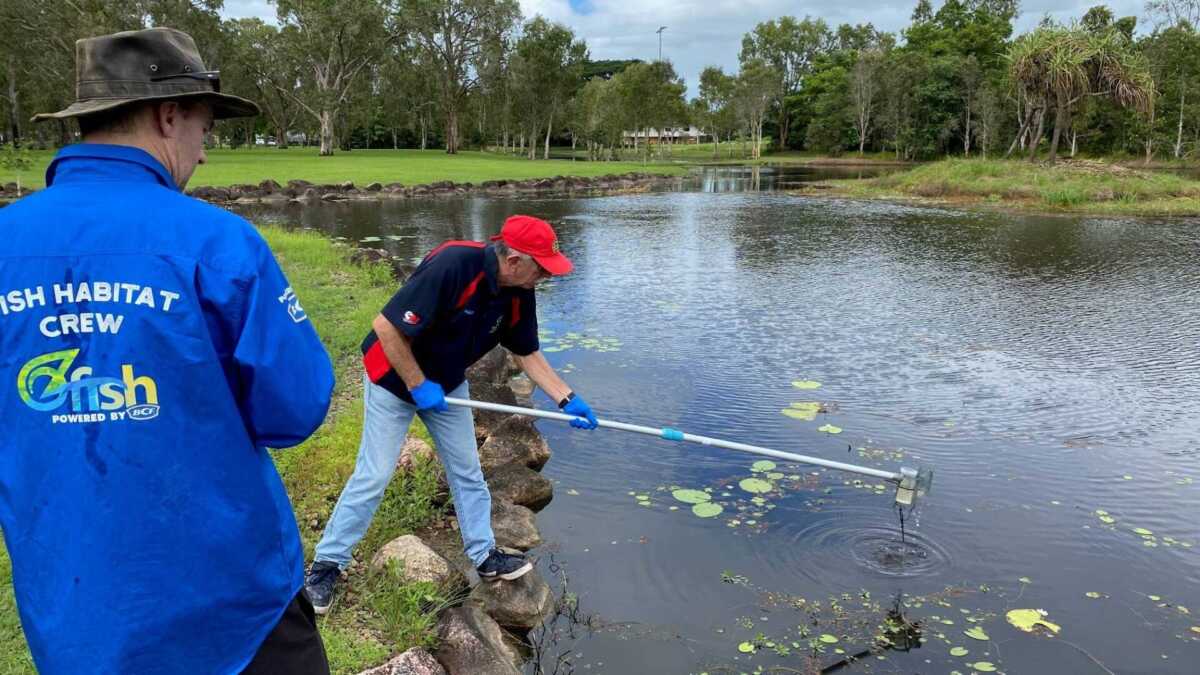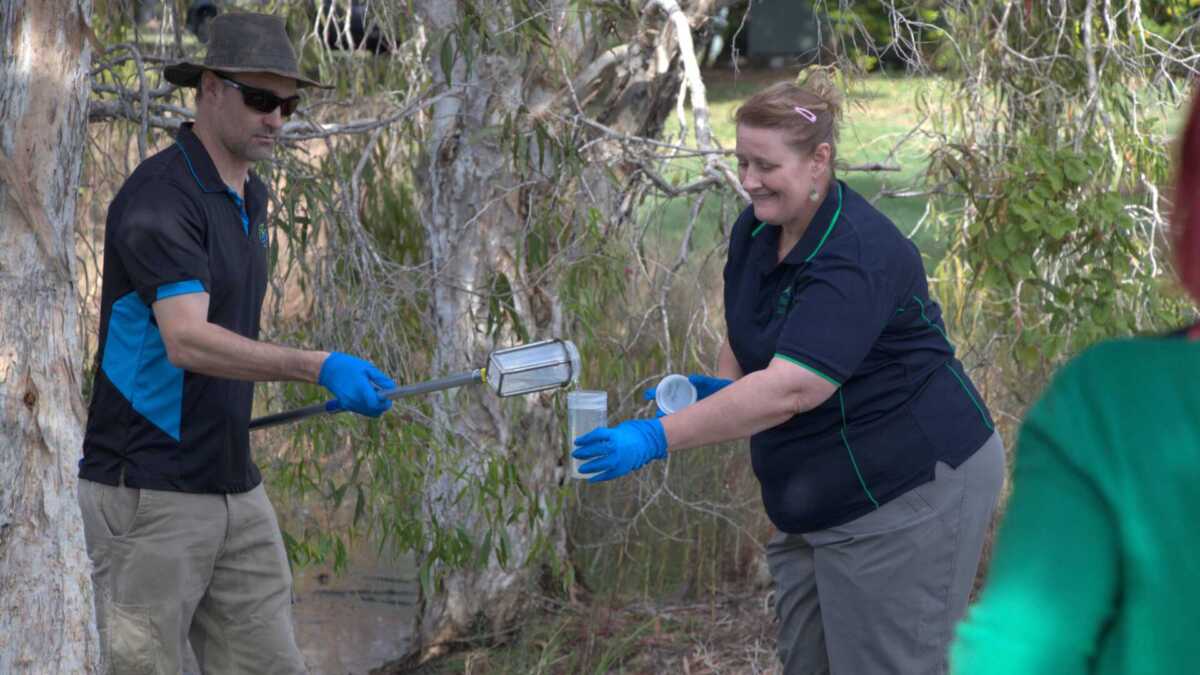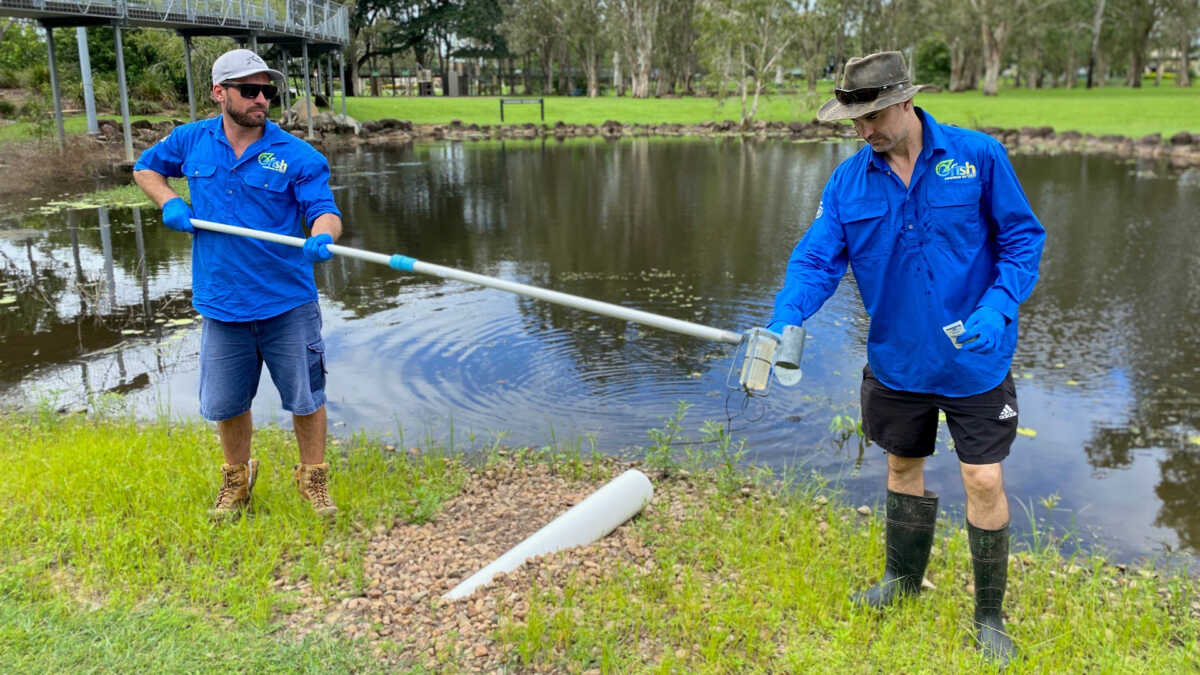Volunteers to help test the water in the tropics for innovative environmental DNA project

OzFish Unlimited is gearing up for the second year of its environmental DNA (eDNA) testing in North Queensland and is calling on fisher scientists to join in for this simple yet important research.
One of the main aims is to assess fish diversity in tropical waterways and eDNA is an alternative technique that has minimal impact to other monitoring such as setting traps or nets.
Fish and other aquatic life leave fragments of DNA material in the water column and this can be detected after processing the water samples in the laboratory.
The project is a collaboration between OzFish, James Cook University’s Centre for Tropical Water and Aquatic Ecosystem Research (TropWATER), Townsville City Council, the CSIRO and the University of Queensland, with funding support from the Australian Government’s Reef Trust and the Great Barrier Reef Foundation.
In year one of the project, the eDNA was collected by simply taking water samples and testing it at a lab.
This time around, we’ve partnered with the CSIRO team to also collect eDNA using “passive samples”, which is a method where filter paper is deployed into the water for 10 minutes and the DNA material in the water adheres to it.
Dr Geoff Collins, OzFish Senior Project Manager – North Queensland, said the filter paper will be taken back to the lab for testing along with water samples and a comparison will be made from the results between the two different sampling methods.
The comparison of the eDNA sampling will allow the group to standardise sampling approaches for future eDNA fisher science projects.
Researchers and volunteers from OzFish’s North Queensland Chapter will kick off the latest round of testing on Friday October 27 at South Johnstone near Innisfail and anyone interested in helping out is invited to meet at the Fossey Park Boat Ramp in Innisfail at 8.30am where they will be shown how to conduct the sampling.
The project team will head south to the O’Connell River at Mackay next Friday (November 3) for further testing before doing likewise at Barratta Creek in the Burdekin region, south of Townsville on November 10.
Dr Collins said the first two sites rely on natural rainfall events for water flow, while the Burdekin receives supplemental flows from irrigation water.
This citizen science project is developing an eDNA metabarcoding method and protocol to describe aquatic communities present across waterways in the dry and wet tropics.
“Understanding the locations and movement patterns of fish enables us to assess the effectiveness of local initiatives and identify areas for further improvement,” Dr Collins explained.
“We are piloting the use of eDNA sampling to improve understanding of fish communities in catchments of the Great Barrier Reef and to assess the impact of waterway health on fish diversity in rivers and wetlands connected to the Reef.
“This simple, but targeted reconnaissance method using eDNA metabarcoding is being integrated into existing citizen science water quality monitoring programs coordinated by OzFish.
“At the start of the program last year, most volunteers didn’t know what eDNA is or how it can be used to sample fish.”
Last year, the project team visited 12 sites across the Herbert, Black, Ross and Burdekin River catchments. We have also been able to collect further samples from two locations around Cairns, taking the total number of sites to 14.
These volunteers made up of recreational fishers and interested community members contributed more than 150 hours of their time towards the project.
It has a lot of scope for expansion and increased adoption throughout the rest of the tropics and Queensland with a potential option in the future for volunteers to be sent sampling kits in the mail so they can conduct testing at a wider range and more locations.
The eDNA sampling program is funded by the partnership between the Australian Government’s Reef Trust and the Great Barrier Reef Foundation and is being delivered in partnership with OzFish Unlimited, James Cook University (TropWATER), the University of Queensland, CSIRO and BCF – Boating, Fishing and Camping.




